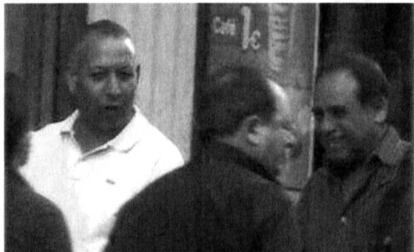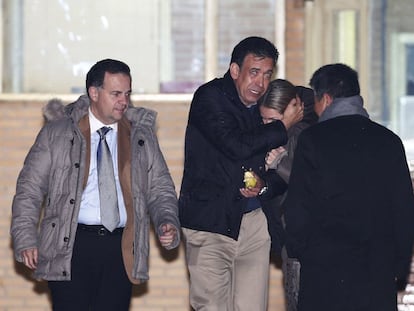How Mexico’s Zetas drug cartel uses Spain to ship cocaine into Europe
EL PAÍS investigation explores transfer of 2,100 kg of the drug, which netted the gang $75 million


In March of this year, Spanish police arrested Mexican national Juan Manuel Muñoz Luévano, aka El Mono (The Monkey), charging him with money laundering and working for the Zetas drug cartel. Since then, authorities have uncovered a money trail to the top of Mexican politics, as well as learning more about the organization’s European distribution network.
Muñoz, now being held in a Spanish prison, is linked to Humberto Moreira, a former high-ranking Mexican politician, and Rolando González Treviño, a Mexican media mogul who has turned state’s evidence. According to González’s statements to US police, he helped Moreira funnel embezzled government funds. Moreira is also believed to have used some of the funneled funds to help finance the 2012 campaign of Mexican President Enrique Peña Nieto.
Muñoz was arrested in Spain as part of an investigation between the US and Spanish authorities
Following Muñoz’s arrest, Spanish police found Excel spreadsheets on a laptop computer at his home detailing the handover of 59 suitcases containing a total of €63 million to Zetas bosses inside luxury hotels, supermarket parking lots and car dealerships in Mexico City.
EL PAÍS has seen official documents confirming that the money came from the sale of 2,100 kilograms of cocaine the Zetas cartel shipped into the country through the port of Valencia over the course of six days in early February 2012, and then sold on to the rest of Europe.
The US authorities have asked Spain to extradite Muñoz, calling him “an important member of the Zetas who has high-level political links in Mexico.” The DEA further describes him as “a major drug trafficker and money launderer.” They say he runs a chain of gas stations in Mexico he uses to launder the money he makes from drug trafficking.
Spanish police believe the computer they found in Muñoz’s house, in the upscale La Moraleja district of Madrid, belonged to Ricardo Fuyivara Romero. The latter is believed to have visited Muñoz in June 2012, and was arrested the following month in Mexico.
Muñoz is linked to Humberto Moreira, a former high-ranking Mexican politician
One entry on the spreadsheets in the computer notes the “loss” by “accident” of some $900,000 after Fuyivara was arrested in Mexico. The amount tallies with the figure the Mexican police reported finding in a suitcase when they detained him.
The spreadsheets detail the handover of money from the sale of cocaine in Europe by José Antonio Guzmán Inzunza and Said Rbib Erraouy. Both were photographed by Spanish police when they met Muñoz in Madrid.
Guzmán allegedly made 19 payments from the proceeds of the sales, receiving a commission of €1.1 million. Rbib distributed around 650 kilograms of cocaine in Europe, receiving €2.5 million. Both men’s commissions were estimated at between 10% and 16%.
Spanish police say that Rbib was a key player in the Zetas’ drug distribution network, describing him as “not only tasked with supplying cocaine to buyers and distributors throughout Europe, but also responsible for providing phones and secure communications systems to its members.”
After Spain, The Netherlands is a key distribution point for the Zetas cartel in Europe. Muñoz traveled to Amsterdam in July 2012, at the time when the gang was transferring to Mexico the money from the sale of the 2,100 kilograms shipped into Spain.
The Spanish police also discovered references to several people used to transport and transfer cash to Mexico.
English version by Nick Lyne.
Tu suscripción se está usando en otro dispositivo
¿Quieres añadir otro usuario a tu suscripción?
Si continúas leyendo en este dispositivo, no se podrá leer en el otro.
FlechaTu suscripción se está usando en otro dispositivo y solo puedes acceder a EL PAÍS desde un dispositivo a la vez.
Si quieres compartir tu cuenta, cambia tu suscripción a la modalidad Premium, así podrás añadir otro usuario. Cada uno accederá con su propia cuenta de email, lo que os permitirá personalizar vuestra experiencia en EL PAÍS.
En el caso de no saber quién está usando tu cuenta, te recomendamos cambiar tu contraseña aquí.
Si decides continuar compartiendo tu cuenta, este mensaje se mostrará en tu dispositivo y en el de la otra persona que está usando tu cuenta de forma indefinida, afectando a tu experiencia de lectura. Puedes consultar aquí los términos y condiciones de la suscripción digital.









































